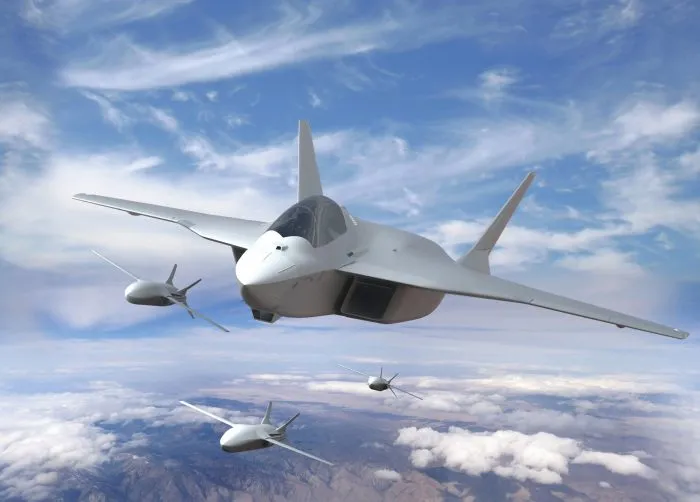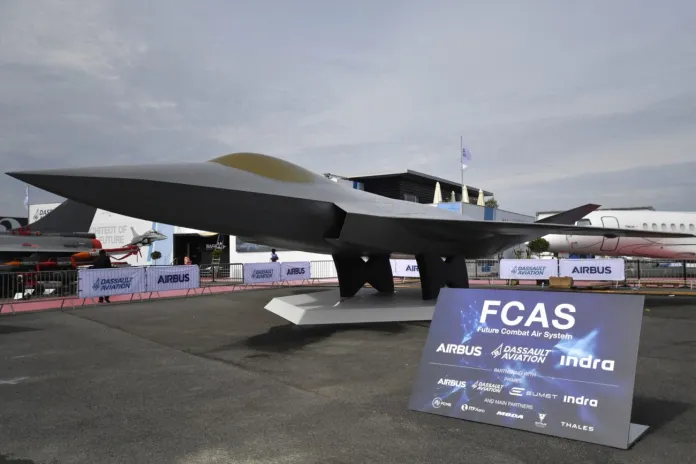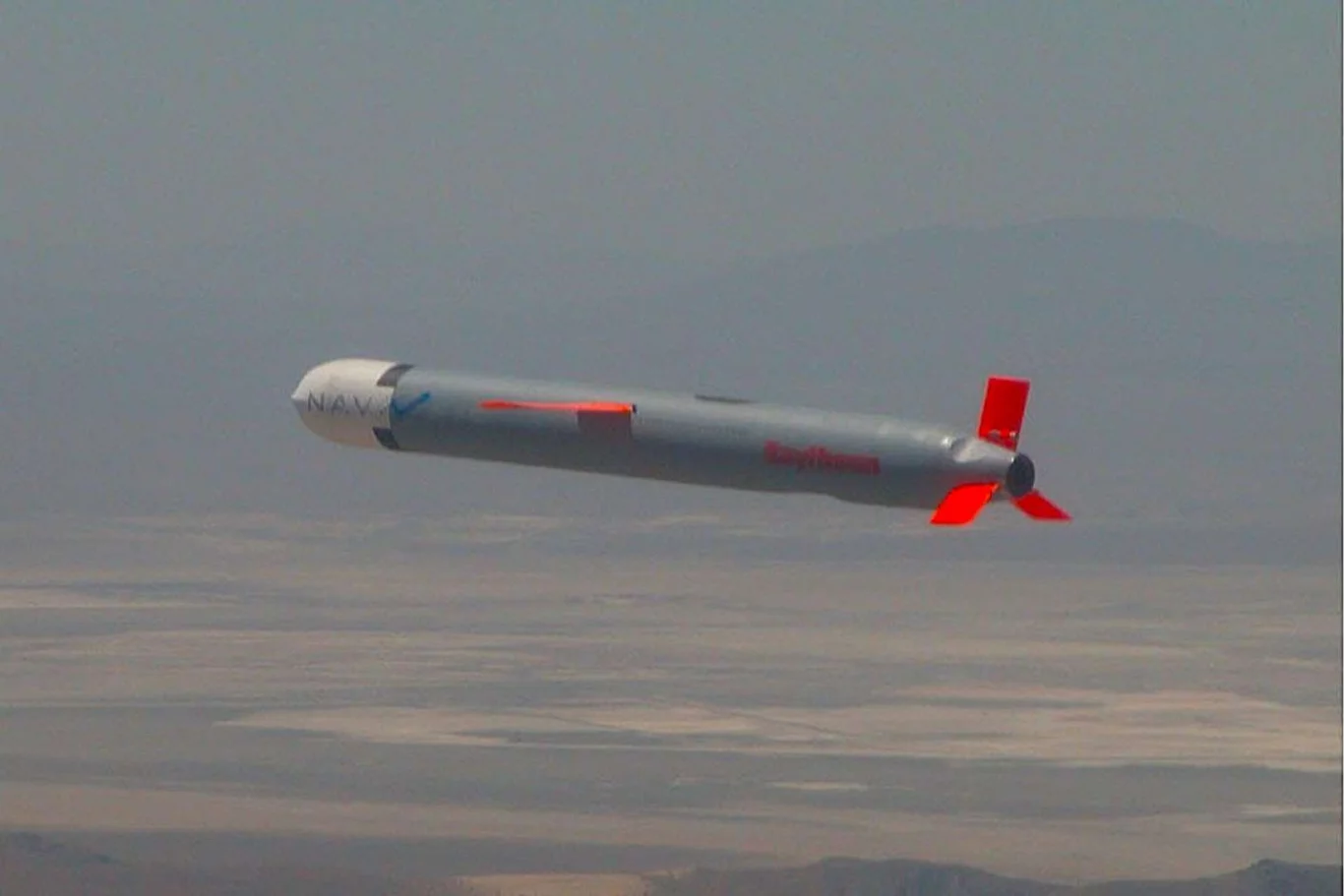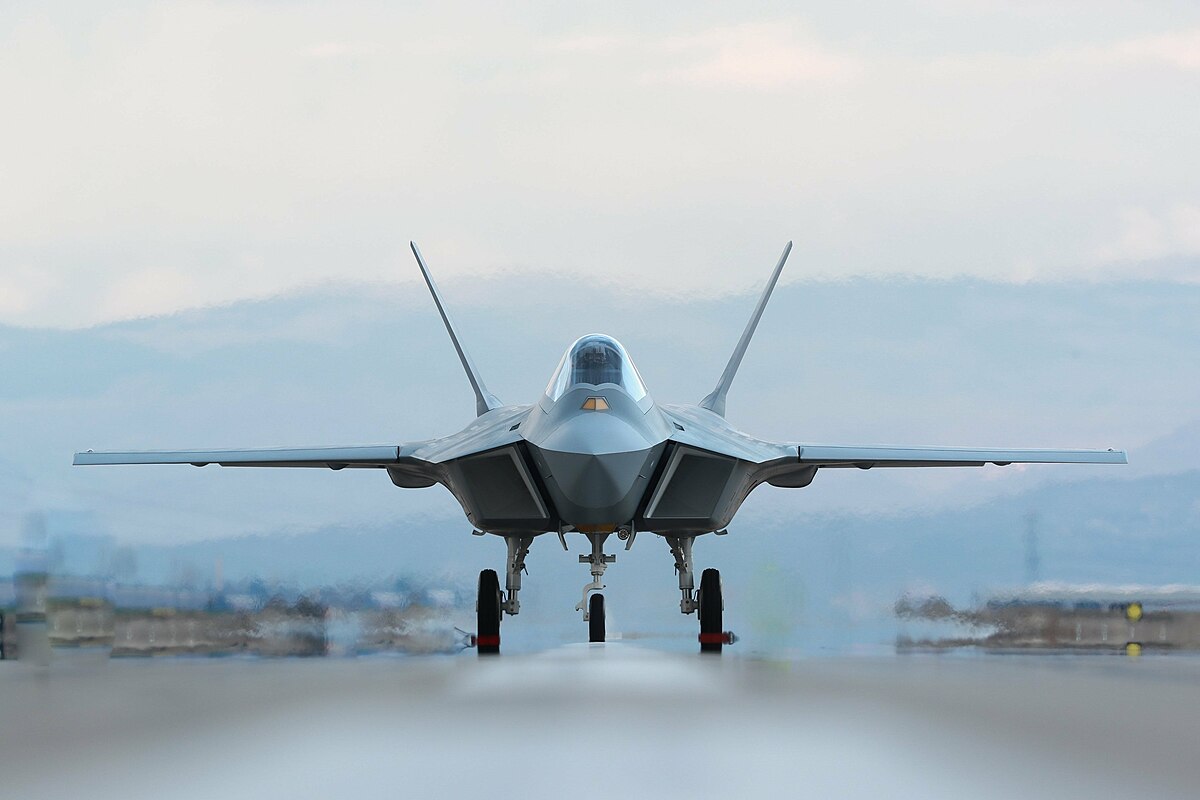Belgium’s recent decision to reconsider its pursuit of full-partner status in the Future Combat Air System (FCAS) program, Europe’s flagship sixth-generation fighter jet initiative, has sent shockwaves through the continent’s defense landscape. The abrupt shift, announced just days after committing to join France, Germany, and Spain as a full member, stems from a public spat with Dassault Aviation CEO Eric Trappier. His remarks, perceived as arrogant by Belgian officials, have reignited debates about European defense cooperation, strategic autonomy, and the challenges plaguing the FCAS program. This article explores the context of Belgium’s decision, the underlying tensions with Dassault, and the broader implications for the FCAS initiative, which is critical to Europe’s defense ambitions.
Belgium’s journey with the FCAS program began with its designation as an observer in April 2024, a move aimed at positioning the country to closely monitor the development of this transformative defense project. The FCAS, or Système de Combat Aérien du Futur (SCAF) in French, is a collaborative effort among France, Germany, and Spain to develop a next-generation fighter jet, known as the New Generation Fighter (NGF), alongside advanced drones, sensors, and communication systems. The program is seen as a cornerstone of Europe’s push for technological independence and strategic autonomy, reducing reliance on non-European defense systems, particularly those from the United States.
Belgium, a founding member of both NATO and the European Union, expressed its intent to transition from observer to full partner status as early as possible, with a target of joining before Phase 2 of the FCAS program begins in 2026. This ambition was formalized in the Belgian government’s Strategic Vision 2025 report, released on July 18, 2025, which outlined the country’s goal to contribute to Europe’s defense capabilities through active participation in FCAS. To this end, Belgium allocated €325 million (approximately USD 351 million) to fund its involvement in the program’s next development phase.
However, tensions flared when Eric Trappier, CEO of Dassault Aviation—the French company leading the NGF’s development—publicly criticized Belgium’s eligibility for FCAS membership. Speaking at a quarterly financial results event, Trappier argued that Belgium’s decision to purchase 34 American-made F-35 stealth fighter jets in 2018 disqualified it from joining the program. He emphasized that a key criterion for FCAS participation is a commitment to procuring European-made defense equipment, stating, “If [Belgium] gives up the idea of buying F-35s, they’d be welcome; if they are not, then that’s making a monkey out of us.” Trappier further suggested that Belgium’s interest in FCAS was driven by a desire to secure economic benefits, such as jobs, without fully committing to the European defense ecosystem.
The Belgian government, led by Defense and Trade Minister Theo Francken, responded sharply. In a post on X, Francken declared, “The government will evaluate its position in the FCAS project. As a founding father of NATO and the EU, a loyal ally, and headquarters holder, we have no lessons to learn from arrogant industrialists.” While Francken did not name Trappier directly, the statement was widely interpreted as a rebuke of the Dassault CEO’s comments. Belgium’s reaction reflects not only frustration with Trappier’s tone but also a broader sensitivity to being sidelined in a program critical to European defense unity.
Belgium’s indignation is rooted in its historical significance as a cornerstone of European and transatlantic cooperation. As Francken’s statement highlighted, Belgium is a founding member of both NATO and the EU, with a legacy of fostering multilateral institutions. Paul-Henri Spaak, a prominent Belgian statesman, played a pivotal role in shaping modern Europe. Spaak was instrumental in drafting the 1957 Treaty of Rome, which established the European Economic Community (EEC), a precursor to the EU. He also contributed significantly to the creation of NATO through his involvement in the 1949 North Atlantic Treaty negotiations. Belgium’s hosting of NATO headquarters in Brussels and the EU’s key institutions further underscores its commitment to collective security and European integration.
This historical context amplifies Belgium’s sensitivity to Trappier’s remarks, which positioned Dassault—and by extension, France—as the gatekeeper of European defense pride. For a nation that has long championed European unity, being accused of undermining FCAS’s goals by purchasing F-35s was a stinging rebuke, particularly when framed as a lack of loyalty to European ideals.
The F-35 Controversy and European Defense Choices
The core of the dispute lies in Belgium’s 2018 decision to procure Lockheed Martin’s F-35 Lightning II over European alternatives, such as Dassault’s Rafale or the Eurofighter Typhoon, developed by a consortium of the UK, Germany, Spain, and Italy. The choice sparked controversy, with European defense firms and officials, including Trappier, criticizing Belgium for prioritizing American technology over European solutions. Trappier’s frustration was evident in a 2023 clash with then-Belgian Defense Minister Ludivine Dedonder, who defended the F-35 purchase as a strategic necessity while expressing interest in FCAS observer status.
Trappier’s argument that Belgium’s F-35 acquisition disqualifies it from FCAS participation raises questions about consistency, as Germany, a core FCAS member, has also purchased F-35s to replace its aging Tornado fleet. Germany’s 2022 decision to acquire 35 F-35s did not prompt similar objections from Trappier, highlighting a potential double standard. Neither Germany nor Spain, both FCAS partners, have publicly opposed Belgium’s bid for full membership, despite its F-35 purchase. This discrepancy suggests that Trappier’s stance may be driven by competitive dynamics within the European defense industry, particularly Dassault’s desire to maintain dominance in the FCAS program.
FCAS: A Program Fraught with Challenges
The FCAS program, launched in 2018 by France and Germany and joined by Spain in 2019, aims to deliver a highly advanced, interoperable air combat system by the 2040s. At its heart is the NGF, a sixth-generation fighter jet designed to operate alongside drones, advanced sensors, and networked systems. Dassault Aviation serves as the prime contractor for the NGF, with Airbus representing Germany and Spain as a key partner. Other companies, such as France’s Safran (developing the jet’s engine) and Spain’s Indra (leading sensor development), play significant roles in the program’s seven technical “pillars,” which encompass propulsion, stealth, drones, and connectivity.
Despite its ambitious goals, FCAS has been plagued by disagreements among its partners. Key issues include:
- Industrial Workshare: Disputes over the division of tasks, particularly regarding the NGF, have been a persistent source of tension. Dassault, leveraging its expertise in fighter jet design (e.g., the Rafale), insists on leading the NGF’s development with minimal concessions to Airbus. Trappier has expressed skepticism about equal work-sharing, arguing in a June 2025 Bloomberg interview that it could compromise the project’s technological quality. Germany, represented by Airbus, demands a more equitable distribution to ensure its defense industry benefits.
- Intellectual Property Rights: Disagreements over ownership and control of proprietary technologies have slowed progress, as each nation seeks to protect its industrial interests.
- Budgeting and Priorities: Differing national priorities and funding commitments have complicated the program’s timeline. A recent German report claimed that France is pushing for an 80% share of the NGF’s work, a move that German lawmaker Christoph Schmid warned could be the “last nail in the coffin” for FCAS.
- Timeline Delays: Originally envisioned for operational deployment in the 2030s, the program’s timeline has slipped significantly, with the first demonstrator flight now scheduled for 2029 and full deployment potentially delayed until the 2040s.

These challenges have created a turbulent environment for FCAS, with Belgium’s potential entry adding another layer of complexity. The program is currently in Phase 1B, focused on research, design, and development of critical systems. Phase 2, set to begin in 2026, will involve building a demonstrator, but this milestone depends on resolving ongoing disputes between Dassault and Airbus.
Belgium’s interest in FCAS aligns with its broader commitment to European strategic autonomy, a concept that emphasizes reducing dependence on external powers, particularly the United States, for defense capabilities. The Strategic Vision 2025 report underscored FCAS as a “unique opportunity” to advance innovation and strengthen Europe’s defense industry. Former Defense Minister Ludivine Dedonder echoed this sentiment, describing the program as vital for European security.
Belgium’s observer status allowed it to gain insights into FCAS’s development, positioning it to make an informed decision about full participation. The allocated €325 million signaled Brussels’ readiness to invest in the program, potentially securing economic benefits, such as jobs and technological advancements, for its defense sector. However, Trappier’s remarks have cast doubt on Belgium’s path forward, raising questions about whether it will remain an observer or withdraw entirely.
Broader Implications for FCAS and European Defense
The public spat between Belgium and Trappier underscores deeper fissures within the FCAS program and the European defense ecosystem. Several implications arise from this episode:
- Strains on European Unity: Trappier’s comments and Belgium’s reaction highlight the challenges of fostering unity in a program involving multiple nations with competing interests. Belgium’s role as a founding member of NATO and the EU amplifies the diplomatic weight of this dispute, as it risks alienating a key ally.
- Industrial Rivalries: The tension between Dassault and Airbus reflects broader rivalries within Europe’s defense industry. Dassault’s insistence on leading the NGF’s development clashes with Airbus’s push for a more balanced partnership, potentially undermining the program’s collaborative spirit.
- Impact of F-35 Purchases: The controversy over Belgium’s and Germany’s F-35 acquisitions highlights a broader dilemma for Europe: balancing immediate operational needs with long-term investments in indigenous defense capabilities. The F-35’s stealth and advanced capabilities make it attractive for NATO members, but its purchase has sparked accusations of undermining European autonomy.
- Program Delays and Costs: Ongoing disputes, compounded by Belgium’s uncertain status, could further delay FCAS and increase costs, jeopardizing the program’s viability. The recent meeting between German Chancellor Friedrich Merz and French President Emmanuel Macron on July 23, 2025, underscored the urgency of resolving these issues, with a directive for defense ministers to propose solutions by late August 2025.
- Belgium’s Role in FCAS: Belgium’s reconsideration of its FCAS ambitions raises questions about its future in the program. If Brussels opts to remain an observer or withdraw, it could weaken the program’s inclusivity and limit Belgium’s influence in shaping Europe’s defense future.
The Path Forward
The FCAS program stands at a critical juncture. For Belgium, the decision to reconsider full membership reflects a desire to assert its sovereignty and defend its credentials as a committed European and NATO ally. Trappier’s remarks, while rooted in Dassault’s strategic interests, risk alienating partners and exacerbating tensions within the program. France and Germany, as the program’s anchors, must navigate these challenges carefully to maintain momentum and ensure FCAS delivers on its promise of a cutting-edge, European-led defense system.
The coming weeks will be pivotal. The directive from Merz and Macron for a resolution by late August 2025 places pressure on Dassault, Airbus, and their respective governments to compromise on workshare and other contentious issues. Belgium’s role, whether as a full partner, observer, or outsider, remains uncertain, but its decision will likely influence the program’s trajectory and Europe’s broader defense ambitions.
For now, the FCAS program serves as a microcosm of the complexities inherent in European defense cooperation—balancing national interests, industrial rivalries, and the pursuit of strategic autonomy. As Belgium weighs its options, the continent watches closely, aware that the success of FCAS could define the future of European defense for decades to come.




